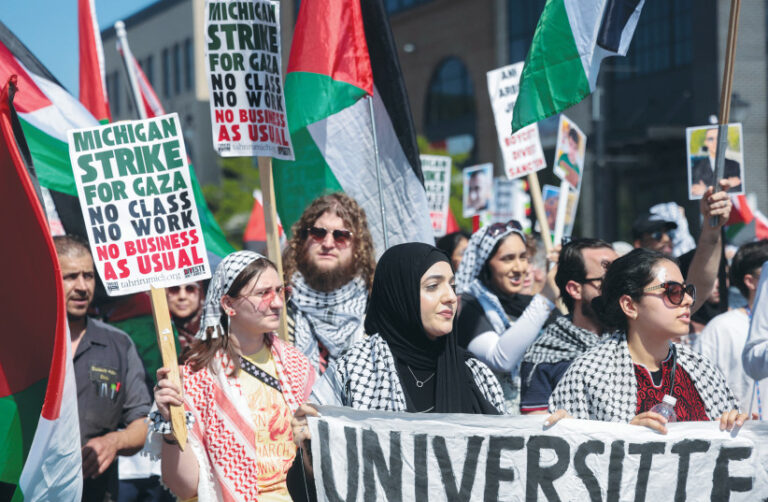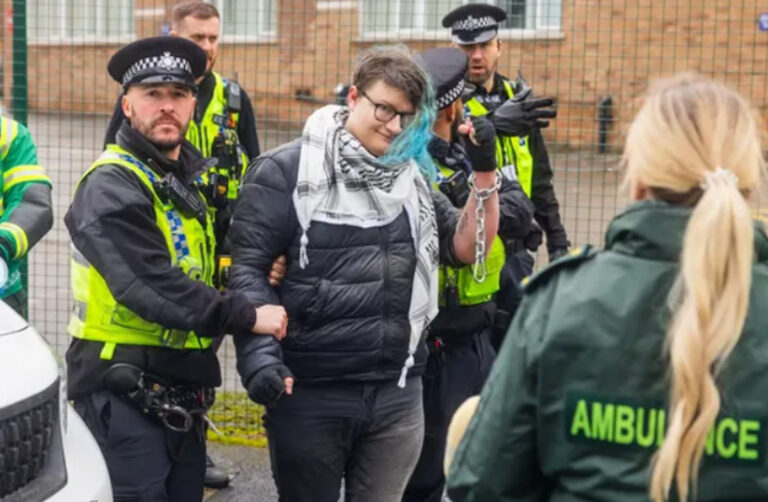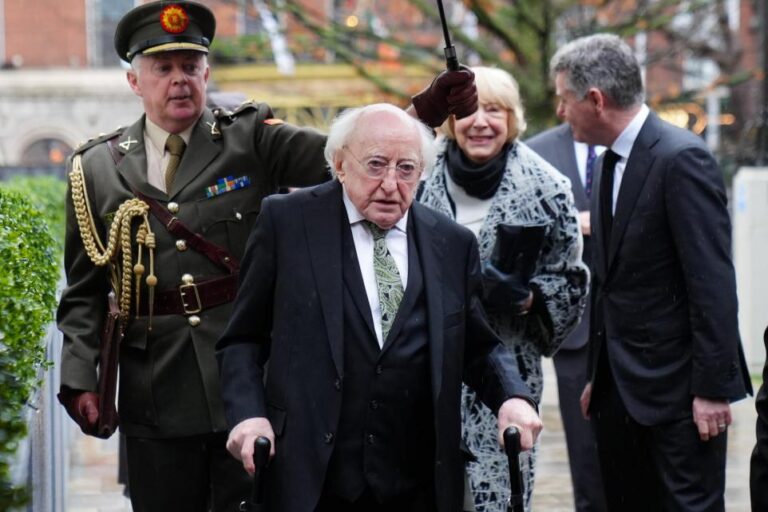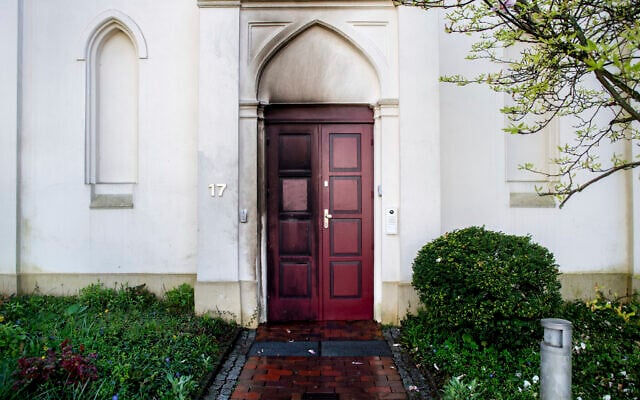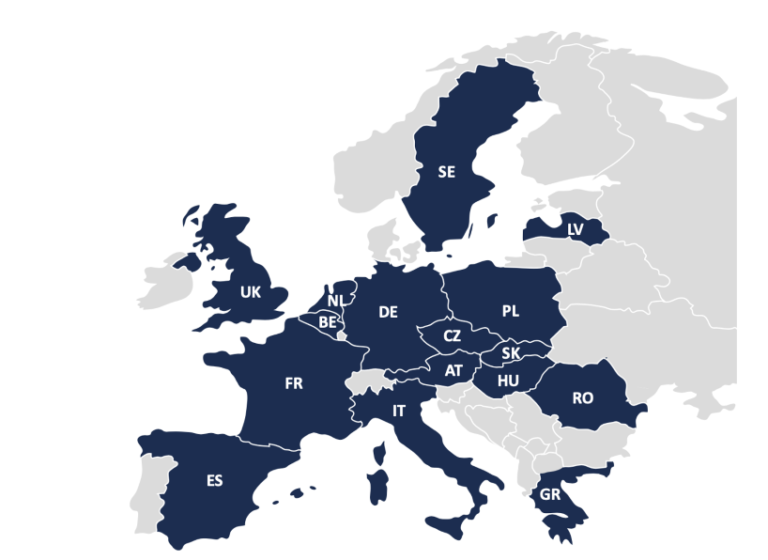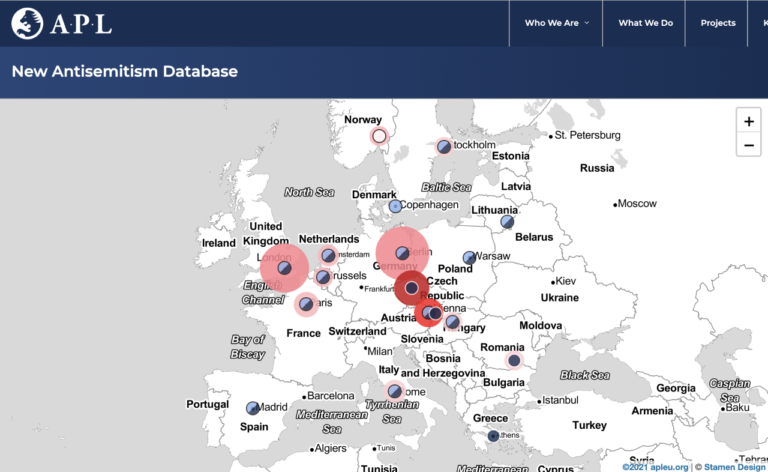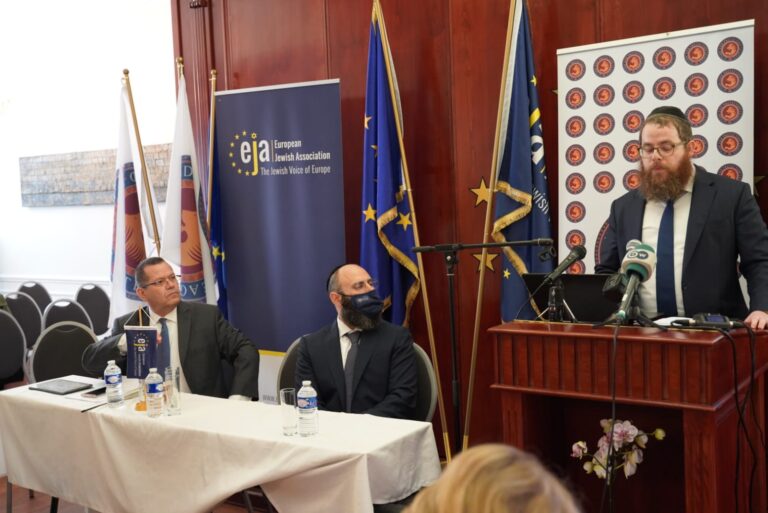The war against Hamas is a matter of national security for Israel, and Gaza is not just a battlefield but a message to all the surrounding Arab states and terrorist organisations, says security expert and counter-terrorism expert Yair Ansbacher. We spoke to a Hungarian-born officer in the Israel Defense Forces (IDF) who was among the first to see the terrorists break through the Gaza border on October 7 2023.
Yair Ansbacher believes that the situation in the Middle East should be seen as part of a global war between the liberal democratic forces in the West and the East and that what is happening to Israel could happen to Europe. The counter-terrorist recently visited Hungary at the invitation of the Action and Protection Foundation and gave lectures at the Óbuda Synagogue and the Jewish House in Miskolc. In Budapest, we spoke to him about the following topics, among others:
- Will the fighting end after the defeat of Hamas?
- Could the winning of Donald Trump in the presidential election mean a turn in the Middle East?
- Why will the autumn months be particularly dangerous?
- What kind of leader does Israel need?
How do you see the state of mind of Israelis in this time of war?
Since October 7, we have been living in terrible times. Israel is very sensitive about civilian casualties and kidnapped hostages, and many people are scolding the government, but the majority of people still want to continue this war. In many cases, even mothers who have already lost their sons or daughters.
In the media, you can also see mothers who have published photos of their children taken hostage and tortured, still demanding a settlement with Hamas.
Of course, there are some, but this is not the average; the media often distort. Freeing the hostages is important to everyone, but 90 per cent of Israelis understand perfectly well that no deal should be made with terrorists. Too much has been sacrificed, and previous hostage negotiations have failed. Take the case of Gilad Shalit, who was taken hostage in 2006 and for whom Israel gave up more than a thousand terrorists, including Yahya Sinwar, one of the current leaders of Hamas and one of the masterminds of the October 7 massacre. Of course, many people are saying many things, but I do not believe that the Prime Minister will finally agree to the deal. The Israelis now want to change history, which means destroying the Hamas regime once and for all.
And to what extent will this create a new situation if Iran is behind these terrorist organisations?
On the one hand, if Gaza is not controlled by Hamas, then we can concentrate all our forces in the north, on Hezbollah, it is very important strategically not to be forced between several fronts. But more importantly, it is a psychological warfare. Iran, Egypt, Jordan and Syria must see that we are determined. Right now, they are watching to see whether October 7 was an accidental mistake or a persistent weakness that could embolden them to attack.
That is why this war is a matter of national security for Israel. And Gaza is not only a battlefield but a message to all the surrounding Arab states and terrorist organisations. The West always forgets this, but in the Middle East, only force matters. There is an Arabic term, hudna, which is mistakenly translated as peace, but it actually means a ceasefire, and it is used when you are weak and gathering strength to fight again. Peace means something different in the West than it does in the Middle East. Only a roaring lion can bring order in the middle of the jungle.
And what happens after the war in Gaza? People cannot be eliminated. What is the guarantee that after Hamas, there will not be another terrorist organisation in the region?
There is no problem with the people, and if they see Hamas weakening, they will no longer support them. It is really important to see that it is a different way of thinking. It is a culture of fear, where you always go with the strong and never say what you really think. If somebody criticises Hamas now, in three minutes, they’re going to be hanged in front of the whole tribe. But if Hamas is weakened, and it is already in the process of being weakened, then people will turn against them.
Will Israel regain control of the territory?
There are many possible scenarios, but I think that Israel will definitely be present in the zone for a year. We will ensure the supply of civilians, and in the meantime, we will eliminate the last cells of Hamas.
And what about Europe and America? What do you think the reason is for the growing anti-Israel sentiment?
Israel is never very popular. But the British, for example, are quite familiar with Arab culture; they understand Israel. It’s a question of what kind of policy they can pursue while thinking about their voters. And there are more and more Muslims living in Western countries. Trump or your prime minister, for example, understands that what is going on in Israel is part of the global Muslim jihad threat.
Would it help if Trump was the next US president?
Of course. If the most important leader in the West, the President of the United States, is a weak man, it will affect the global balance of power. And it’s not just Israel. We see the impact in China, North Korea, Turkey, Iran and Russia. These nations are challenging the US and the West, and no one should think they will hesitate if they have the opportunity to take the world throne. It is best for the world that the West is strong, and it is not about inciting war; it is about responsibility.
Politically, how dangerous is it for Israel to be unpopular?
It is not good for anybody to be politically discriminated against, to be pushed aside, we are a small country and we have to have good relations with everybody, but I think in this particular war it is something else. This is not a diplomatic issue. You can call it different names, but at the end of the day, it is the old ugly face of antisemitism in a different form.
Many people equate October 7 with 9/11, yet the world does not feel the same way about the two events. Often, even Jews criticise Israel. What do you think is the reason for this?
This is a typical case of self-hating antisemitism. I don’t think it was the fault of the Jews when they were shot into the Danube in Budapest; it is the same now. And, of course, many are simply ignorant and go after the others. In the West, the Palestinian party seems to be more popular now. They don’t see that extremist Muslims are using Western values and liberal progressive ideas for their own propaganda, even though this is the most intolerant culture in the world.
Homosexuals and human rights activists protest for the Palestinians, while they are the first to be executed in the Gaza Strip. The West is weak today, but fortunately, there is still a strong conservative layer in America, which is why we have a chance. The big issue today, by the way, is not the Middle East but China and North Korea. The next few months will be a very dangerous time because everyone knows that Biden will not be the next President, and there is no new president yet. Many people are trying to turn the transition period to their advantage, whether China and Taiwan or North and South Korea.
Do you think the situation in the Middle East could impact the security of Europe or America in the long or short term?
I think the Middle East situation should be considered part of the global war between the liberal democratic forces in the West and the East. So, what is happening to Israel could also happen to Europe. To give you an example, one of the Iranian proxies, the Yemenis in the flesh, is closing down the entire sea trade route for months, and the world does nothing about it; the West is showing weakness, and that could give Iran incentive.
Iran wants to control the world and sees itself as a modern-day Persian empire. The Shiites think of themselves as superior to other peoples; they think like the Nazis. It is no coincidence that they are the originators of the term Aryan. They ignore the Arabs, the Kurds, the Sunnis, and the Afghans, who are all part of their republic. And they are very clever, always using others to shed blood, like Hamas or Hezbollah.
At the end of your presentation, you mentioned that Judaism has a special message for the world: world peace. What exactly do you mean by this, since the world is seeing constant conflict and war around Israel?
We are really at war now, and we have to win because, as I said, nobody listens to a weak animal. But strength is not enough, the developed world wants a new message, and this is a message of peace, that enough is enough of conquest. The Bible says that the message will come from Zion, from Jerusalem.
Each culture considers its own message the most authentic, so why should the Jewish message be more valid?
Most people want to take over the world; that’s what Muslims do, that’s what Christianity did, that’s what the Russians and the Chinese do. Jewish culture has never wanted to conquer or enslave others. That is why the Jewish religion is not converting and why, in the centuries of the Diaspora, Jews have not even defended themselves against their invaders. I think this is also the explanation for the self-hating antisemitism I mentioned. Some Jews want to avoid even the appearance of dominating others, even if the accusation is unjust.
It is interesting because Israel is accused of conquest by many, and we know the antisemitic stereotype of the imperialist Jew.
This is because we are not getting the message across well. People only see the tanks, but not that it is time to put things in order and finally stop the constant bloodshed. This will also require new leadership in Israel after the war. We need a leader who is not only talented but also has faith, that is, a deeper religious commitment, and who also cares about peace.
Do you mean a religious man should lead Israel? There are dangers in that…
Fanaticism and religion are two different things. I can imagine a national, religious but liberal, peace-loving leadership. I see many such people fighting in Israel now. The secular leadership cannot give people the answer to the essential questions, for example, why we are here, why we are fighting this war.
Do you see any politicians you could imagine as future prime ministers?
Ask me that question in a few months. Everyone in Israel today is talking about the need for a new right. But it’s not really a question of right or left; many mistakes have been made on both sides. The founder of Hasidism, the Baal Shem Tov, taught us that we must see the truth in everything and learn from everyone.
What do you think is important in left-wing or liberal values?
First of all, there is a need for love and peace. This is a sacred thing and an important Jewish value that should not be ignored. The second is the love of the beauty of the world, universalism and the love of culture. The left is very creative, and this is also needed. It is also a gift from God. So the time has come not for another right-wing party, but for a force that brings both sides together. It is a big challenge to unite people, but it is also part of the message because God is the creator of us all, and he needs us all.
How long do you think this current war can last? And I don’t just mean Gaza. There are articles in the papers saying that the situation with Hezbollah in the north could deteriorate.
This is difficult to predict because things could change in the meantime, even without another war. A decisive and consistent military intervention in Gaza now might be enough. In Gaza, I think it will take a few more months to weaken Hamas once and for all. The problem is that Iran is very close to producing a nuclear bomb, and it will change everything if that happens.
The author of the interview, Judit Hidas, is a writer for Kalligram and the Park publisher, and she regularly publishes articles and articles on the social status of women and Judaism. This article is the translated version of the original Hungarian copy published by index.hu.
Photo credit: Viktor Kelen

